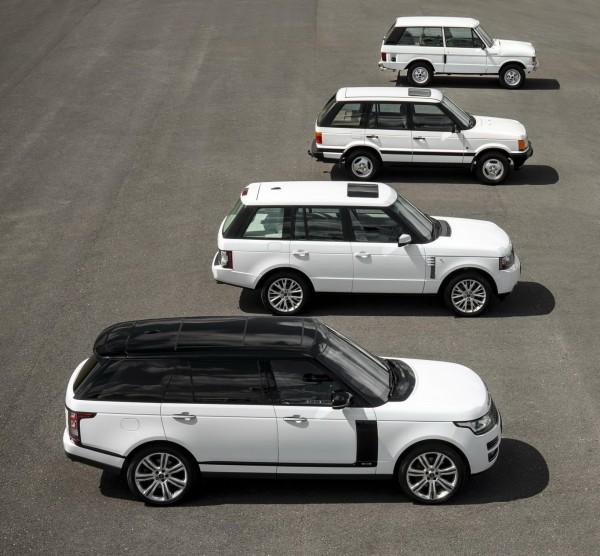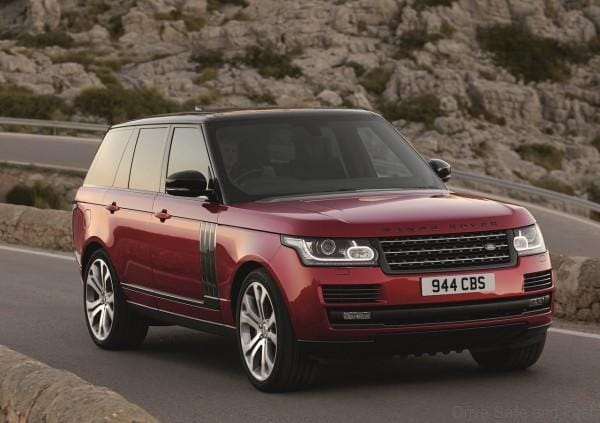49 YEARS OF RANGE ROVER
The Range Rover has evolved into the world’s most elegant and sophisticated SUV, achieving more than one million sales (1.7 million to date) along the way. Trademark features including its ‘floating’ roof, distinctive clamshell bonnet, continuous belt line and practical split tailgate all pay homage to the groundbreaking original.
The Range Rover story begins with the 26 pre-production models, which wore Velar badges in an effort to hide its identity – velare means to ‘veil’ or ‘cover’ in Italian – made up of letters from the ‘ALVIS’ and ‘ROVER’ badges that usually adorn the front and rear of a vehicle. Next comes the timeless Range Rover Classic two-door as the images showcase successive generations, finishing with the most powerful derivative, the 550PS SVAutobiography Dynamic built by Jaguar Land Rover’s Special Vehicle Operations (SVO) division.


When it was first launched in 1970, Range Rover was one of the first vehicles to deliver permanent all-wheel drive while many others were still selectable. In 1971 the original model was cited as ‘an exemplary work of industrial design’ when it became the first vehicle to be displayed at the world-famous Louvre museum in Paris and it has been at the forefront of design and engineering innovation ever since.
The four-door variant was introduced in 1981, quickly followed by the first application of an automatic transmission in Range Rover in 1982. In 1989 the luxury SUV was the first 4×4 to be fitted with anti-lock brakes (ABS) and in 1992 it became the first SUV in the world fitted with electronic traction control and automatic electronic air suspension.
The engineering firsts continued in 2012, when Range Rover was the world’s first all-aluminium SUV. More recently, in 2014, the luxury SUV was the first vehicle to employ Land Rover’s advanced semi-autonomous All-Terrain Progress Control (ATPC) technology, effectively an off-road cruise control for autonomous control of speed on all terrains.
The last model included in the animation, the SVAutobiography Dynamic, shares its V8 engine with the acclaimed Range Rover Sport SVR and is specially calibrated to produce 680Nm of torque and 0-100km/h (0-62mph) in only 5.4 seconds. Interior enhancements including diamond quilted leather upholstery with contrast stitching deliver elevated refinement and desirability.


Since its launch 48 years ago Land Rover’s flagship has achieved more than 1,700,000 sales across the globe and earned a reputation as the ultimate luxury all-terrain vehicle. The legendary SUV’s unrivalled breadth of capability and elegance make it a favourite of royalty, business leaders, politicians and celebrities the world over.
Range Rover is designed, engineered and manufactured in the UK, and exported to more than 170 global markets.

The evolution of the Range Rover is visualised with the following models:

- 1969 Range Rover Prototype (Velar)
- 1970 Range Rover Classic (two-door)
- 1973 Range Rover Classic (Suffix C)
- 1981 Range Rover Classic (four-door)
- 1994 Second-generation Range Rover (P38a)
- 2001 Third-generation Range Rover
- 2012 Fourth-generation Range Rover
- 2014 Fourth-generation Range Rover Long Wheelbase
- 2015 Range Rover SVAutobiography
- 2016 Range Rover SVAutobiography Dynamic